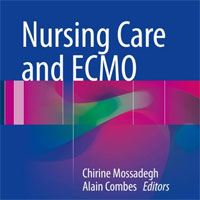Tag: analysis

Sepsis-Associated 30-Day Risk-Standardized Readmissions
One third of sepsis survivors were readmitted and wide variation exists between hospitals. Several demographic and structural factors are associated with this variation. Measures of higher quality in-hospital care were correlated... read more

Analysis of Unplanned Postoperative Admissions to the ICU
Our study is the first diverse analysis of unplanned postoperative ICU admissions in the literature across multiple specialties and practice models. We found an association of advanced age, higher ASA PS class, and duration... read more

Muscle Mass and Physical Recovery in ICU: Innovations for targeting of Nutrition and Exercise
New innovative techniques are demonstrating promise to target recovery from PICS utilizing a combination of objective LBM and metabolic assessment, targeted nutrition interventions, personalized exercise interventions for... read more

Cardiovascular Testing and Clinical Outcomes in Emergency Department Patients With Chest Pain
In patients who present to the emergency department with chest pain without evidence of ischemia, is cardiac testing - noninvasive testing or coronary angiography - associated with changes in revascularization or acute myocardial... read more

Boarding ICU patients: Are our rounding practices subpar?
Surgical Intensive Care Unit (SICU) patients "boarding" in ICUs other than the designated home unit have been shown to suffer increased rates of complications. We hypothesized that ICU rounding practices are different... read more

Extracorporeal membrane oxygenation for poisoning in adult patients: outcomes and predictors of mortality
Data on outcomes from severe poisoning in adults receiving extracorporeal membrane oxygenation (ECMO) is currently confined to single-center experiences or specific etiologies. While ECMO cannot facilitate toxin removal,... read more

Data Sharing Statements for Clinical Trials
The International Committee of Medical Journal Editors (ICMJE) believes there is an ethical obligation to responsibly share data generated by interventional clinical trials because trial participants have put themselves at... read more

Critical care at the end of life: a population-level cohort study of cost and outcomes
Despite the high cost associated with ICU use at the end of life, very little is known at a population level about the characteristics of users and their end of life experience. In this study, our goal was to characterize... read more

Accuracy of Medical Claims for Identifying Cardiovascular and Bleeding Events After Myocardial Infarction
In this secondary analysis of a clinical trial of 12 365 patients with acute myocardial infarction, the cumulative 1-year event rates for myocardial infarction, stroke, and bleeding were lower when medical claims were used... read more

Integration of Single-Center Data-Driven Vital Sign Parameters into a Modified Pediatric Early Warning System
Pediatric early warning systems using expert-derived vital sign parameters demonstrate limited sensitivity and specificity in identifying deterioration. We hypothesized that modified tools using data-driven vital sign parameters... read more

Seven Roadblocks to Improving Patient Safety
Don Berwick's 7 Roadblocks to Improving Patient Safety. Eliminating such incidents requires continuous attention, says Berwick, during the National Patient Safety Foundation Patient Safety Congress. Berwick, the Institute... read more

Albumin Administration in Sepsis: The Case for and Against
Serum albumin is an essential plasma protein, with a variety of homeostatic and predictive roles in health and disease. Hypoalbuminaemia is common in critical illness. Human albumin solution has been administered clinically... read more

Effect of Reminder Devices on Medication Adherence
In this randomized clinical trial of 53 480 enrollees of a pharmacy benefit manager, no statistically significant difference in adherence was found between those in the control group and those who received a reminder device... read more

Antimicrobial Stewardship and Appropriate Antimicrobial Prescribing in Hospitals
This study examines whether an antimicrobial stewardship approach grounded in behavioral theory and focusing on preserving prescriber autonomy and participation is associated with appropriateness of antimicrobial prescribing... read more








